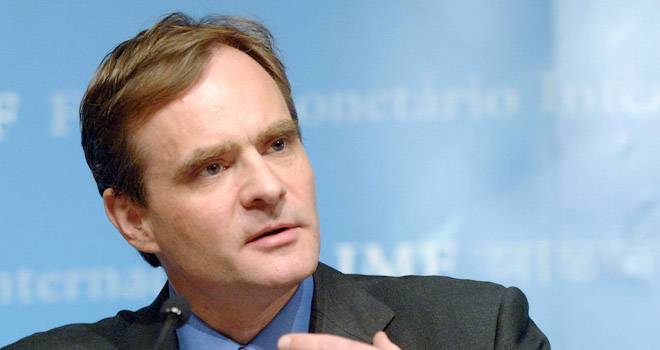With a number of Republicans musing that failing to pass a debt increase might not be so bad after all, TPM floated the idea by someone who knows a thing or two about countries facing default: former IMF chief economist Simon Johnson.
“It would be very damaging, there’s no question about that,” Johnson said of a debt ceiling default. “It would really destabilize financial markets and lead to all sorts of unpleasant repercussions in the United States and around the world.”
Experts are divided on just how bad the effects of a short default would be on the economy. While some leading economists, including Republican adviser Douglas Holtz-Eakin, have suggested even a brief failure to meet US obligations could have devastating long term consequences, others have argued that the market would write it off as a Congressional temper tantrum and return to normal once the immediate crisis was resolved.
“I think there’s lasting consequences,” Johnson said. “If it happens in a way that makes the US seem less than fiscally responsible, nobody’s going to forget that any time soon.”
He added that Republican claims that the US faced even worse economic consequences if they fail to pass a deficit deal that passed investors’ muster were inaccurate: if it were true, then interest rates on long-term debt would already be going up given widespread pessimism that the two sides will produce anything major.
“We certainly need a long term deal, but if we don’t come up with one right away that will just be conforming to market expectations,” he said. “I don’t think anyone is really expecting the budget to be sorted out before the 2012 presidential election. Hopefully, the budget will be a major element of the debate for that election and out of it will come some new political consensus and support to one way or another make the budget more sustainable.”
His prescription for the short term? Let the Bush tax cuts expire and reform the tax code with a European-style VAT that includes protections for the poor. Longer term problems like health care costs can be solved over the next decade or two rather than in one quick burst now.
“It’s not that you have to change [health care] now in order to convince the markets, but you do ultimately have to change it because by 2030 or 2050 you’re bankrupting not just the government budget, you’re bankrupting private individuals.”






